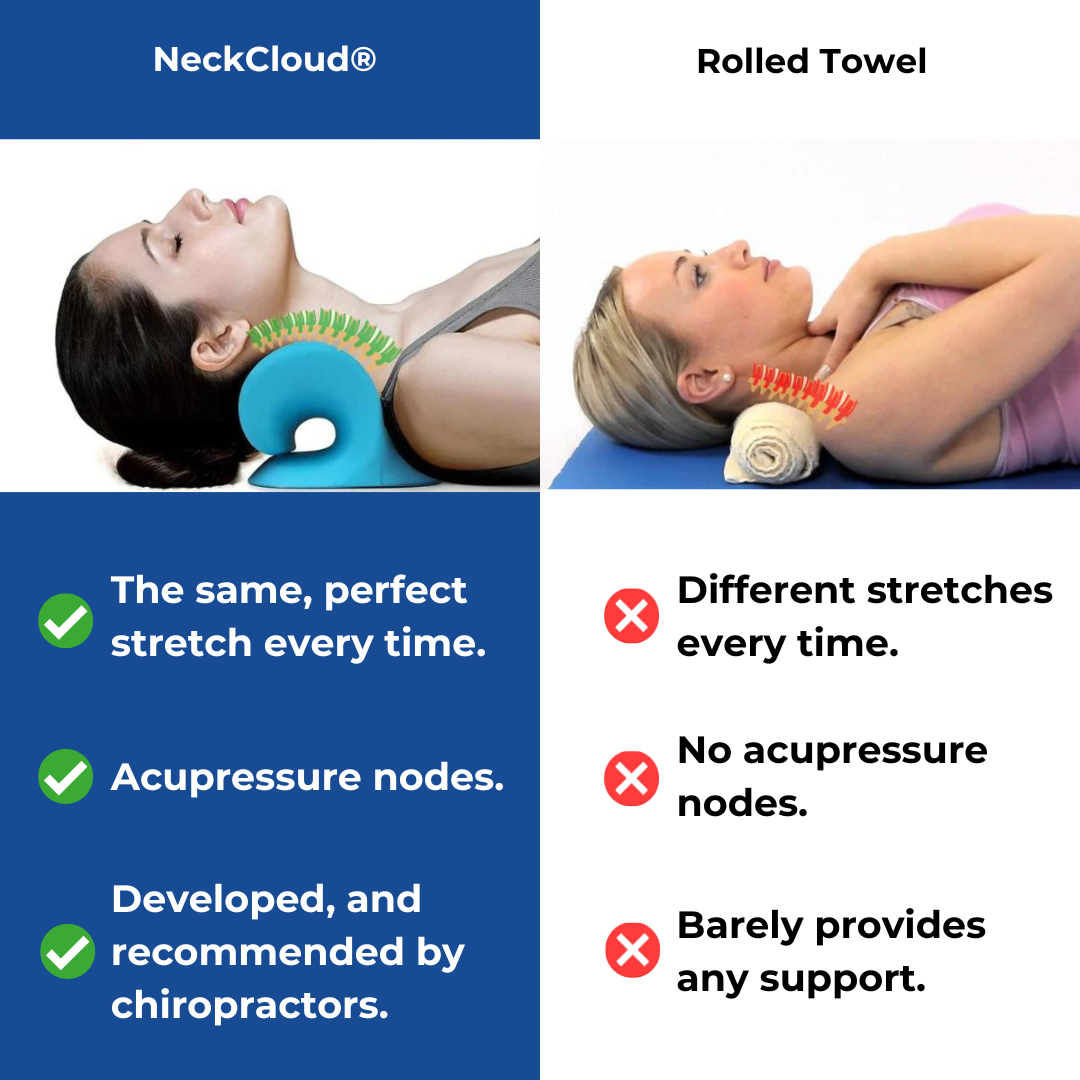Experience the Benefits of the Neck Cloud for Neck and Shoulder Relief
Experience the Benefits of the Neck Cloud for Neck and Shoulder Relief
Blog Article
The Effect of Stress on Neck Pain: Strategies for Minimizing Tension and Pain
In today's fast-paced globe, it's obvious that stress and anxiety has become a widespread consider the onset and exacerbation of neck discomfort. The elaborate partnership between anxiety and muscle stress commonly leaves individuals seeking remedy for the discomfort that takes place. By discovering targeted techniques intended at reducing stress and promoting relaxation, one can start to address the source of neck pain and work in the direction of an extra balanced state of well-being. Join us on a journey to untangle the impact of tension on neck discomfort and uncover effective ways to alleviate pain and boost overall lifestyle.
Recognizing Stress-Related Neck Discomfort
Stress-related neck pain can manifest as tension, rigidity, or pain in the neck and shoulder area. The link in between anxiety and neck pain exists in the body's physical reaction to tension, which can result in muscle stress and rigidity in the neck muscular tissues.
Identifying Common Stress Areas
Often experienced by people under anxiety, tension locations in the body can provide useful insights into the physical indications of mental pressure. One common stress area is the neck, where anxiety frequently shows up physically. Tension frustrations, stiff neck muscle mass, and limited variety of activity are common signs of stress-related neck stress. The shoulders are another typical location where tension collects. Anxiety can create the muscles in the shoulders to tighten up, bring about discomfort and pain. In addition, the top back is prone to tension accumulation, especially in individuals who experience persistent stress. Poor position and extended resting can aggravate tension in this area. The jaw is likewise an usual location for stress-related tension, as many individuals clench their jaw or grind their teeth when stressed. Being conscious of these usual stress locations can aid individuals recognize the physical signs of tension and take actions to resolve them prior to they rise right into persistent discomfort or pain.
Carrying Out Leisure Methods
To successfully take care of stress-related stress in the body, right here implementing relaxation techniques is essential. Relaxation techniques are important devices for decreasing neck pain caused by tension. Deep breathing workouts can help calm the mind and unwind strained muscular tissues in the neck and shoulders (neck cloud). Exercising mindfulness reflection you can find out more can likewise be helpful in alleviating stress and promoting leisure. Dynamic muscular tissue leisure, where you methodically tense and then relax various muscle groups, can launch built-up tension in the neck location. Furthermore, activities like yoga exercise and tai chi integrate both physical movement and leisure, making them efficient techniques for lowering tension and neck discomfort. Taking routine breaks throughout the day to stretch and unwind can protect against muscle mass rigidity and tension from gathering. By integrating these leisure methods into your everyday routine, you can assist manage anxiety levels, minimize stress in the neck, and ease discomfort linked with stress-induced neck pain.
Integrating Self-Care Practices
Including self-care techniques is important for preserving general health and managing stress-related neck pain efficiently. Taking part in normal exercise, such as mild stretching workouts or yoga, can help reduce tension in the neck and shoulders. Practicing good position throughout the day and taking regular breaks from extended resting or display time can likewise stop stress on the neck muscle mass.
In addition, focusing on ample rest and establishing a constant sleep routine can contribute considerably to decreasing tension levels and promoting leisure. Developing a soothing bedtime routine, such as reviewing a publication or taking a cozy bath, can help prepare the body and mind for restful rest. In addition, keeping a well balanced diet plan rich in nutrients and remaining hydrated can support general my explanation health and wellness and minimize inflammation that might worsen neck pain.
Incorporating mindfulness practices, such as deep breathing workouts or meditation, can help manage stress and anxiety and advertise relaxation. Taking time for oneself, participating in leisure activities, and setting boundaries to shield personal time are also vital elements of self-care that can contribute to lowering tension and easing neck pain.
Looking For Expert Help
Just how can individuals successfully resolve persistent neck pain that is influencing their daily life and well-being? Looking for specialist help can be an important action in handling and minimizing neck discomfort.
Chiropractors focus on spine adjustment techniques to improve alignment and minimize stress in the neck location. Physical specialists offer targeted stretches and exercises to reinforce muscles, boost versatility, and improve general neck feature. Orthopedic professionals can give innovative medical treatments such as shots or surgical choices for serious situations of neck discomfort.
Final Thought

Stress-related neck pain can manifest as tension, tightness, or discomfort in the neck and shoulder location. The link in between stress and anxiety and neck discomfort exists in the body's physiological response to anxiety, which can result in muscular tissue tension and rigidity in the neck muscles. Stress migraines, tight neck muscular tissues, and limited variety of activity are common signs of stress-related neck tension. By integrating these leisure strategies into your day-to-day regimen, you can assist handle stress levels, reduce tension in the neck, and ease pain associated with stress-induced neck discomfort.

Report this page